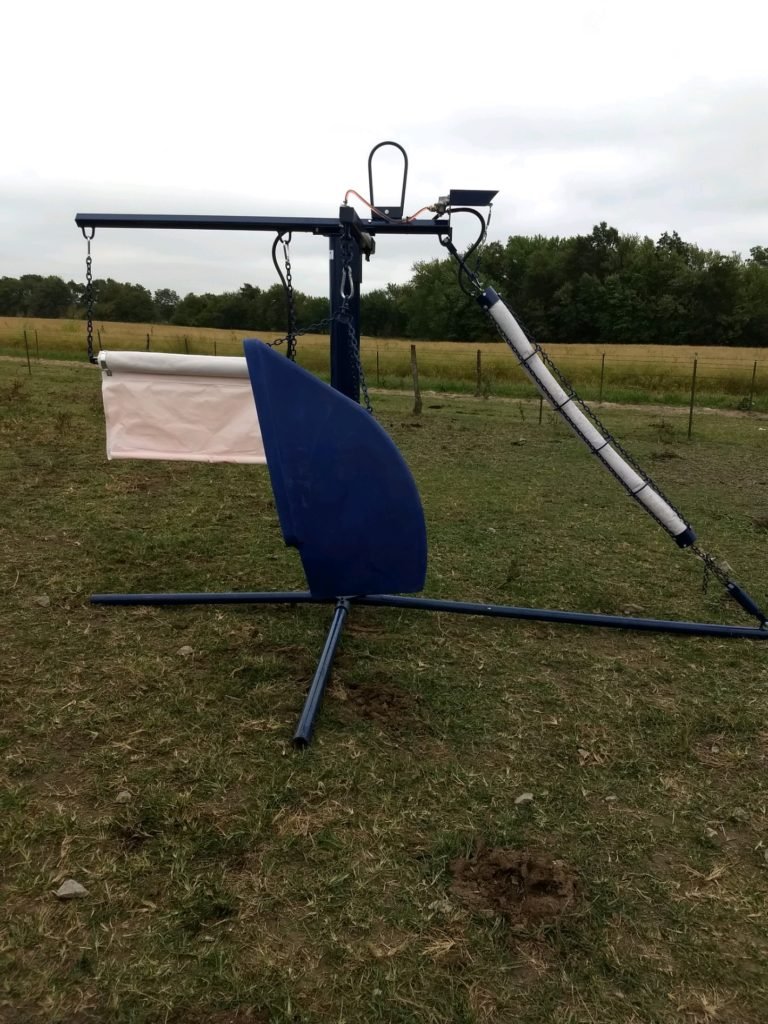
Model 853 - Upright Cattle Oiler System
Lewis Cattle Oilers
The easy and effective way to provide year long external parasite treatment for your cattle!
Why choose the Lewis Cattle Oiler system?
Improve herd health by drastically reducing external parasites, such as Flies, Lice and Ticks.
Improve gains and revenue from your livestock.
Lower herd stress - a happy cow is a healthy cow.
Save money on products - the efficient “cow-powered” pump system prevents product waste.
Key Features
Cows recharge the rubs for you!
Vacuum pump activated by “Cow-Power” - The wick and drape get recharged automatically as cattle use them.
A large 8 Gallon reservoir that holds enough product to last several months (varies with usage and herd size).
3-Chain synthetic wick that promotes cattle’s natural instinct to rub.
Drape oiler to maximize oil coverage - Especially on young calves, which can then treat the mother’s underbelly during nursing.
Large top loop for moving the oiler system.
Specially designed legs minimize system from moving during use.
See our products in action!
Disease Prevention
As the old saying goes, “An ounce of prevention is worth a pound of cure.”
Learn how Lewis Cattle Oilers can prevent expensive and painful diseases in your livestock.
Pinkeye
Pinkeye is a painful disease that is spread by face flies and causes severe eye irritation, weight loss and the risk of permanent blindness.
Regular fly control with a topical backrub is the best method to prevent this disease in your herd.
Lice
Lice infestation causes skin irritation that results in cattle excessively rubbing. This condition is very uncomfortable for cattle and causes weight loss and poor performance.
Regular lice control with a topical backrub is the best treatment and prevention for this condition.
Emerging Risk Notice
Theileria orientalis Ikeda is an emerging parasite that is spread by Asian longhorned ticks and causes infectious anemia in cattle. Infections can lead to major economic loss due to death, illness, and decreased milk production. There are currently no approved treatments or vaccines at this time. Prevention is the best strategy against this disease.
The USDA has officially classified this disease as an Emerging Risk, which has been identified in Virginia, West Virginia, Tennessee, North Carolina, Pennsylvania, Kentucky, and Kansas.
Related Links:
United States Department of Agriculture - Emerging Risk Notice
Tennessee Department of Agriculture - Theileria Overview
Virginia Extension - Virginia Tech - Managing the Asian Longhorned Tick
Virginia-Maryland College of Veterinary Medicine - Theileria orientalis Ikeda genotype in cattle

























